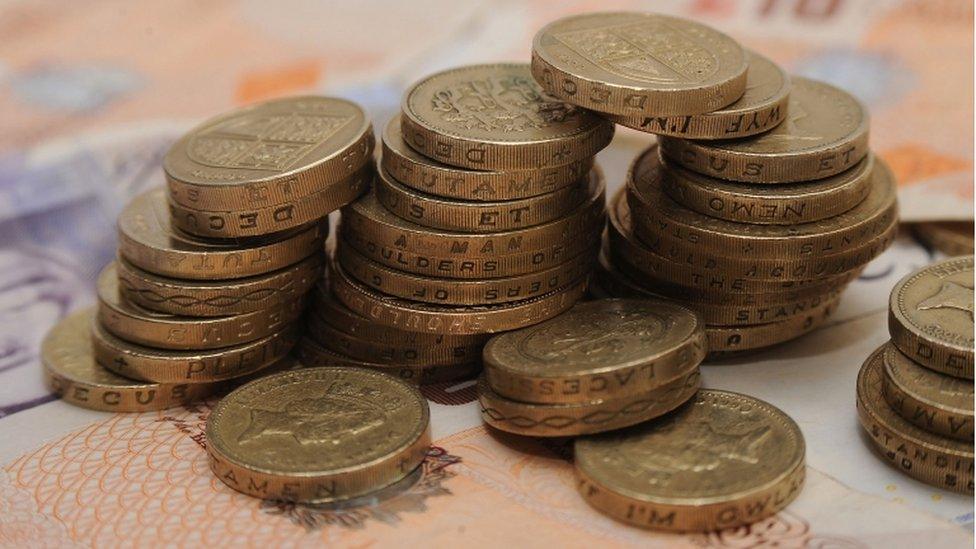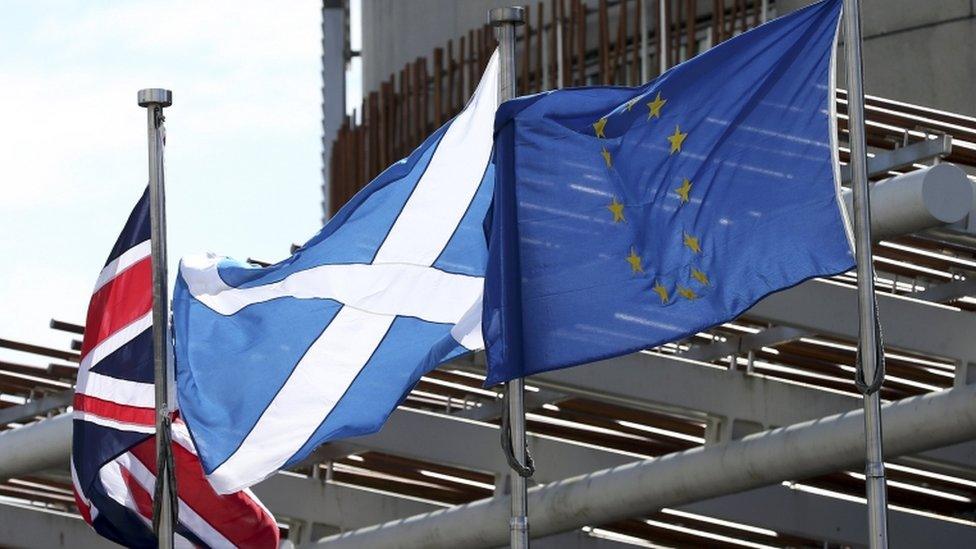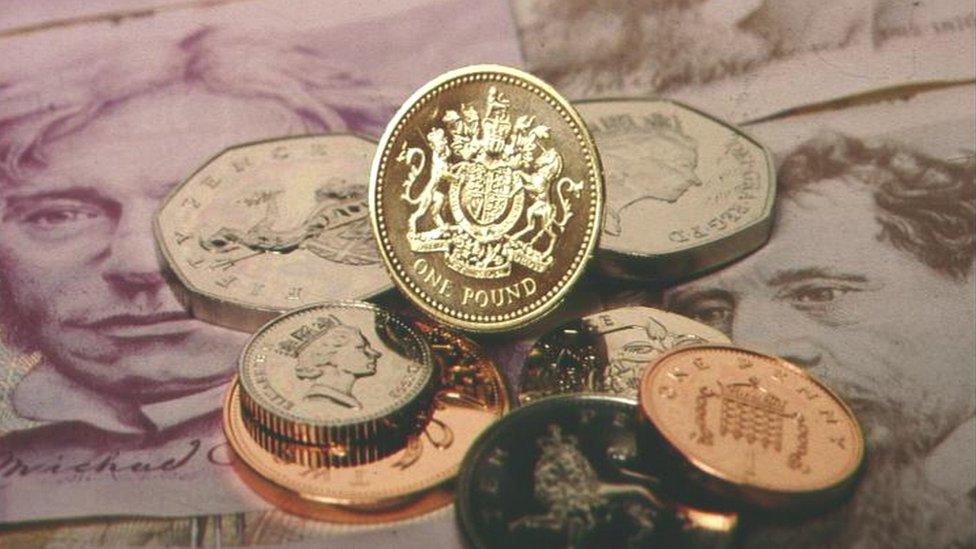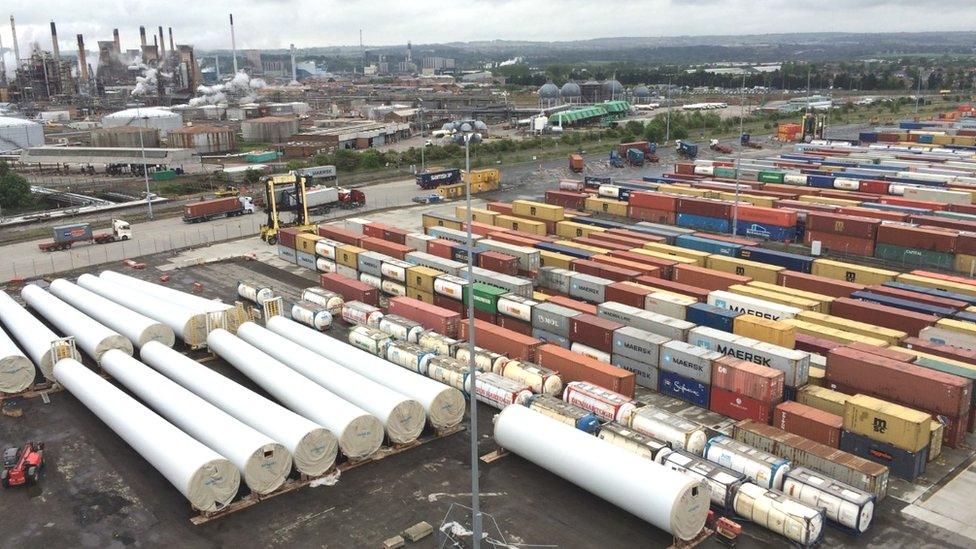Fraser of Allander: Scotland's budget 'could face £1.6bn cut'
- Published

Some public services in Scotland could be facing budget cuts of almost a fifth over the next four years, according to a study by economic forecasters.
The Fraser of Allander Institute said its "worst case scenario" was a £1.6bn cut - 6% - to the Scottish government's overall budget by 2020/21.
Even under more optimistic scenarios, the Scottish budget is still projected to fall in real terms.
The institute also predicted the grant given to councils could be cut by £1bn.
And it warned that cuts to local services were likely to become increasingly apparent in the years ahead unless there was "radical reform".
The institute, which is based at Strathclyde University, said the Scottish government's major commitments on protecting health and police spending and doubling free childcare provision meant other departments could face cuts of up to 16%.
It said the government was therefore facing a "tough re-prioritisation" in unprotected areas if it was to deliver its key pledges.
The report's authors warned of tough choices ahead whatever the outcome of the UK Treasury's deficit-reduction plan in the wake of the Brexit vote.
'Unprecedented cuts'
And it found that even before the uncertainty caused by Brexit, the Scottish government's budget was forecast to fall by just over 3% in real terms by 2020/21 as a result of the UK government's ongoing fiscal consolidation.
The forecasters said the Scottish budget had faced "unprecedented cuts since 2010, with the resource budget for this year 5% lower in real terms than 2010/11 as a result of cuts to Scotland's block grant from Westminster.
And they said a £1.6bn cut over the next four years would represent more than the Scottish government's entire Finance and Economy; Fair Work, Skills and Training; Culture and External Affairs; and Rural Affairs, Food and Environment portfolios combined.

The report said Scotland's budget was facing a 3% cut even before the Brexit vote
New Chancellor Philip Hammond is to set out his revised plans for the economy in the autumn statement on 23 November.
After that, Scottish Finance Secretary Derek Mackay will publish a draft budget for 2016-17.
Prof Graeme Roy, director of the Fraser of Allander Institute, said: "The combination of a weakening in the outlook for the UK public finances impacting on Scotland's block grant, a challenging outlook for devolved revenues, and a series of significant spending priorities - particularly in health and the planned transformation in childcare - will require a substantial re-prioritisation of spend and reform of public services in Scotland.
"While the challenge falls on the finance secretary, critics of the forecast cuts in unprotected public services will have to point out where - with a highly constrained overall funding settlement - their priorities for cuts would be and what taxes they would increase."
The report comes as the Scottish Parliament's fiscal responsibilities are expanding rapidly, with about 40% of devolved expenditure funded by tax revenues collected in Scotland, a figure that the institute said would rise to 50% once half of VAT revenues are assigned.
Scotland's economic performance - and more particularly, Scotland's relative performance compared to the UK - will therefore have a much greater bearing on the spending plans of Holyrood than ever before.
'Change course'
If Scotland can grow its economy more quickly than the rest of the UK, then it will now retain a share of the revenues that this generates.
But if it grows more slowly, then it will bear the risk of lower revenues.
The Scottish government will also have the opportunity to set different tax rates and allowances within devolved taxes to raise or lower revenues and to determine spending on new devolved benefits.
Responding to the report, Scottish Finance Secretary Derek Mackay said: "What is clear, from this helpful intervention by the Fraser of Allander, is that Brexit has put Scotland's economy and our public services at risk and the UK government must change course immediately.
"The Chancellor must stimulate the economy not compound austerity and end the indecision by backing the single market."
Scottish Conservative finance spokesman Murdo Fraser said: "Report after report exposes how Scotland is lagging behind the rest of the UK, and this Sturgeon slowdown could leave Scotland in recession while Britain thrives.
"We've had nearly a decade of the SNP promising the world, while blaming Westminster wherever possible. New tax powers mean that's no longer an option for the nationalists."
Scottish Labour deputy leader Alex Rowley said the predicted cuts to council budgets would have a "devastating impact on vital services" and put thousands of jobs at risk across the country.
He added: "Since they formed a majority government in 2011, the SNP has already cut more than £1bn from the budgets local services across Scotland. It is simply not good enough for the Nationalists to blame Westminster for this."
And Scottish Liberal Democrat leader Willie Rennie said the report should be a "chill warning" to the SNP to rethink their plans.
- Published2 February 2016

- Published28 July 2016

- Published15 June 2016
